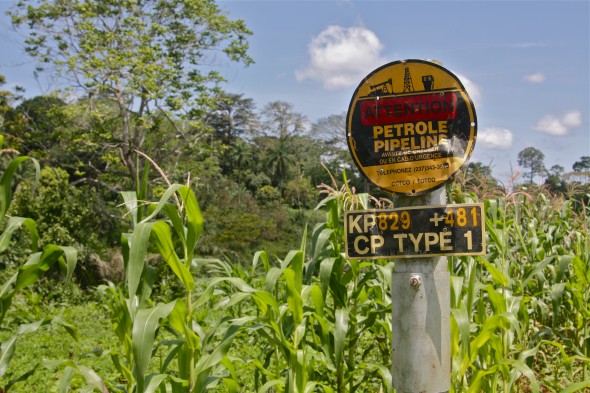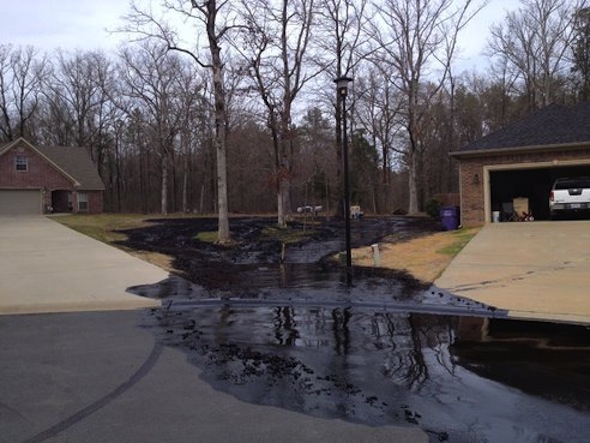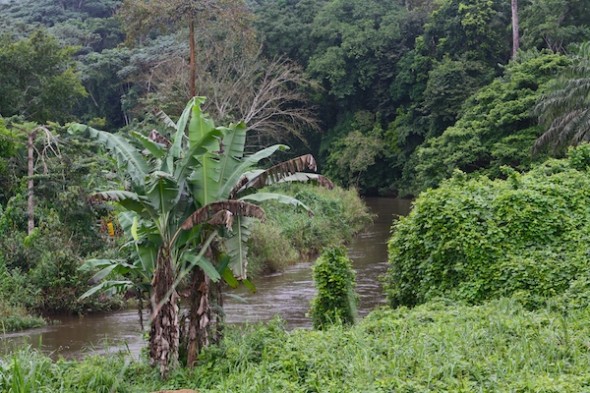Better late than never: Cameroon renegotiates pipeline transit fees
After ten years of operations, Cameroon has finally managed to renegotiate the paltry transit fees it collects on the Chad-Cameroon pipeline.
Cameroon will now receive 618.02 CFA francs ($1.30) per barrel of oil, up from 194.91 CFA francs. Since 2003 Cameroon was collecting less than U.S. 45 cents per barrel, a rate that was not linked to inflation or to the price of oil. Nor was the rate subject to regular review. Even the current rate, $1.30 per barrel, is low, but it will at least be raised every five years based on the rate of inflation.
The quantity of oil coming down the pipeline will soon increase as Niger has signed an agreement to use the pipeline. China National Petroleum Corporation (CNPC), the operator in Niger, will also use the pipeline for its Chadian operations. Exxon Mobil has not disclosed how much CNPC will pay to use the pipeline.
Read more:
Pipeline Tchad-Cameroun: Le droit de passage passe de 194 FCFA à 618 FCFA par baril
Niger awards second oil permit to CNPC, plans exports
Two steps forward, one step back
The Extractive Industries Transparency Initiative (EITI) adopted new standards intended to increase transparency in the oil, gas and mining industries. The new rules were announced in Sydney ahead of the EITI board meeting. Ironically, several of the major oil companies who sit on the EITI board are part of a U.S. lawsuit that seeks to weaken transparency legislation in the U.S. Inter Press Service describes the “disconnect”:
On the one hand, several of the world’s largest oil companies – including ExxonMobil, Shell and Chevron – sit on the EITI board and are thus inferred to be in agreement with the newly revised transparency rules.
On the other hand, these companies are currently part of a lawsuit here attempting to dismantle Section 1504 of the Dodd-Frank Act, the legislation on which the new EITI standards are mostly closely based.
Another Exxon Mobil pipeline ruptures
Exxon Mobil pipeline problems are back in the news and this time it’s in Arkansas.
From InsideClimate News: A pipeline that ruptured and leaked at least 80,000 gallons of oil into central Arkansas on Friday was transporting a heavy form of crude from the Canadian tar sands region, ExxonMobil told InsideClimate News.
Local police said the line gushed oil for 45 minutes before being stopped, according to media reports.
Crude oil ran through a subdivision of Mayflower, Ark., about 20 miles north of Little Rock. Twenty-two homes were evacuated, but no one was hospitalized, Exxon spokesman Charlie Engelmann said on Saturday.
In an interview with InsideClimate News, Faulkner County Judge Allen Dodson said emergency crews prevented the oil from entering waterways. The judge issued an emergency declaration following the spill and is involved in coordinating clean-up efforts among federal, state and local agencies and Exxon.
Exxon fails to address pipeline safety risks, fined $1.7 million
“The U.S. Department of Transportation on Monday hit Exxon Mobil Corp. with a $1.7 million fine over a July 2011 pipeline failure that dumped more than 60,000 gallons of oil into Montana’s Yellowstone River after concluding the oil giant failed to effectively address pipeline safety risks,” writes Sean McLernon in the March 26th edition of Law360.
According to a news release from the Department of Transportation’s Pipeline and Hazardous Materials Safety Administration (PHMSA), “ExxonMobil failed to properly address known seasonal flooding risks to the safety of its pipeline system, including excessive river scour and erosion, and to implement measures that would have mitigated a spill into a waterway.”
I wrote about the Yellowstone River spill in September 2011 asking what lessons the Montana accident might have for Cameroon. To recap what I said then, environmentalists in Cameroon and Chad have long been concerned about the safety of the 1070 km Chad-Cameroon oil pipeline and have stated repeatedly that COTCO (Exxon Mobil pipeline operations in Cameroon) has not provided reliable information about its real capacity to respond in the event of an oil spill. Much of the pipeline crosses relatively remote and hard-to-access areas (few or no roads) and many question COTCO’s assertions that response teams could quickly travel to the scene of any incident.





